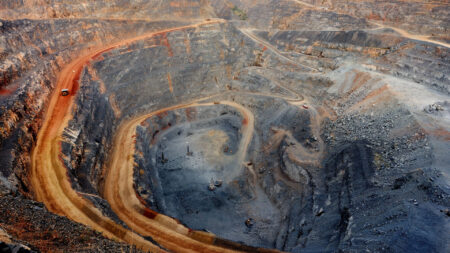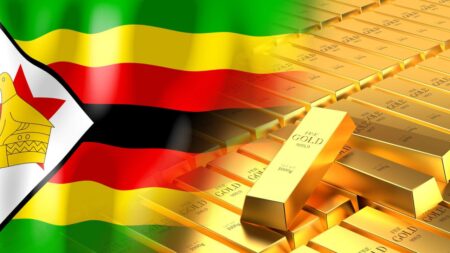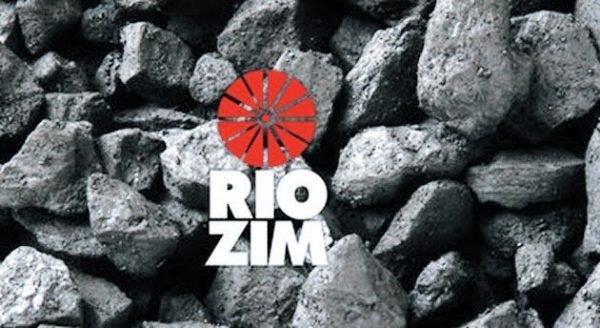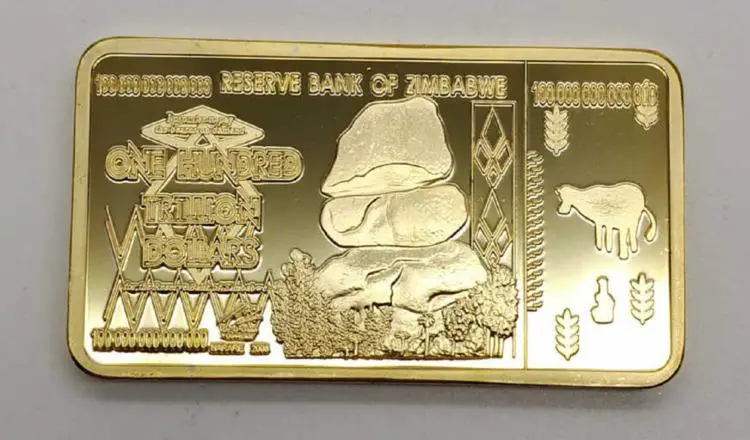- Africa’s new dawn: the rising role of digital and AI in agriculture
- Can Dangote Refinery Transform Africa Energy Ambition
- Gallup Survey: 80 per cent of Kenyan Workers Are Disengaged and Seek New Opportunities
- Madagascar Man Freed from 5KG Tumor After 15-Year Struggle
- How women in Africa are perceived and treated
- Sugar consumption in Kenya to Increase to 1.23 Million Tonnes
- Can Somalia and Turkey Oil deal Bring Change in Somaliland
- Remittances to Kenya dropped to $371.6 million in June, marking a six month low
Browsing: gold
- Global economic trends, such as interest rate changes, inflation, and geopolitical uncertainties, significantly impact gold-backed financing products.
- Some financial products are now linking gold investments to environmentally and socially responsible mining practices.
- This trend reflects a broader shift towards sustainable and ethical investment practices across financial markets.
Gold has been a symbol of wealth and a form of currency for centuries, but its role in the modern financial system has evolved significantly. Today, gold-backed financing encompasses a range of innovative financial products and services, from traditional loans secured by gold to gold trading CFDs. These new trends reflect the enduring value of gold and its growing versatility in the global financial market.
The Evolution of Gold as a Financial Instrument
Historically, gold was used directly as currency or as a standard backing fiat currencies. However, with the end of the gold standard, gold’s role shifted from a direct form
The mining industry in Tanzania holds a unique position as one of the most financially rewarding sectors, consistently generating foreign currency. Beyond its economic significance, this sector also wields considerable political influence within the nation. Therefore, a recent multi-million-dollar agreement forged with Australia and the US for the extraction and processing of critical minerals positions Tanzania advantageously as it prepares to participate in the forthcoming Critical Minerals Summit 2023.…
In May 2023, Zimbabwe released a gold-backed digital currency for peer-to-peer and business transactions. It acted as a store of value as the Zimbabwean dollar continued its steep depreciation. International gold prices controlled by the London Bullion Market Association will dictate the local pricing of Zimbabwe’s digital currency tokens.…
- Corruption, inadequate mining laws, and crackdowns on artisanal gold miners are fueling trade in conflict minerals.
- Cut-throat competition for control of the profitable mineral is to blame for killings and exploitation of people.
- Armed groups in Burkina Faso, Mali, and Niger are terrorizing gold-mining communities by levying taxes in the pretext of offering protection.
West Africa is becoming a hub for the trafficking of conflict minerals partly because of rampant corruption, inadequate mining laws, and ongoing crackdowns on artisanal and small-scale gold mining (ASGM) operations.
Conflict minerals, which are mostly linked to gold rush, are fanning instability in political, economic, environmental, social, and security spheres of populations in West Africa.
Conflicts in mining zones are on the rise in gold-rich Mali and Burkina Faso and parts of Chad. This as competition for control of the profitable mineral fuels killings and exploitation of poor populations.
Gold mining has been a significant …
- Tanzania will start purchasing gold through the Bank of Tanzania (BoT) with a view to establishing a National Gold Reserve.
- This initiative will significantly drive gold mining activities across the nation.
- Tanzania exports gold mainly to South Africa, India, and Switzerland
A plan to re-stablish Tanzania’s gold reserves is promising to hand a lifeline to thousands of small-scale gold miners in Tanzania’s mining industry.
Tanzania has several significant gold mining projects and operations, offering job opportunities to thousands of people. At the moment, Tanzania is one of the top producers of gold across Africa. Consider the Mwakitolwo gold mine in Shinyanga, which employs over 10,000 people despite using an artisanal approach.
Mines to build Tanzania gold reserves
Numerous large-scale gold mines are present in Tanzania and are run by both local and international mining firms. Some of the leading gold mines are Geita Gold, Bulyanhulu, North Mara and Golden Pride.…
Riozim Limited the Zimbabwe based, and Zimbabwe Stock Exchange-listed diversified miner, has more going wrong for it than right.
For a mining company looking at news reports around it, analyst coverage and its financial reports one cannot help but wonder if all is well at one of the oldest ZSE-listed mining companies.
The company has been in the news for poor labour relations with its workers and for poor operational and financial performance and it looks like there is no end in sight for the troubled miner. Investors on the ZSE and in the diversified miner got some reprieve when Bloomberg broke the story that Riozim had bought a diamond miner in Namibia in a move meant to herald the company’s foray into the rest of the continent and increase its investment activities in Zimbabwe.
- RioZim can be reasonably called a beleaguered or troubled company. It is not exactly
Padenga Holdings Limited fits this description in letter and spirit. During the six months under review, the company achieved US$ 57 million in revenues, which was more than double what the company achieved the previous year. The company increased its revenues by 184% from US$ 20 million in 2021. The company’s mining operations contributed 91% of the revenues.
The crocodile operations contributed a negligible US$ 5 million to the top line. If this trend continues, supported by the elevated gold prices, it would not be unreasonable to surmise that Padenga will soon become a pure-play gold producer or even diversify into other precious metals.
The crocodile business could soon be a thing of the past since gold mining activities have largely eclipsed it. This is all speculation as the company has not made an official statement on the future strategic direction of the company.…
Caledonia’s chief executive, Mark Learmoth, speaking of the Bilboes Project called it a “premier gold development project in Zimbabwe and one of the best gold development projects in Africa”.
Through its acquisition strategy, Caledonia is steadily and certainly transforming itself from being a single mine operator to one where it produces a single commodity but operating various mines and mining projects. The company’s boss called this transaction a “transformational asset” and said it was the next step in Caledonia’s journey to becoming a multi-asset mid-tier gold producer.
Prior to its acquisition strategy Caledonia operated a single mine in Zimbabwe which is the Blanket Mine situated in Gwanda, in the Matabeleland South province of Zimbabwe. The company targeted producing 80,000 ounces of gold from its mine in 2022. The acquisition of the Bilboes project, considering that it will produce 168,000 ounces of gold annually over its 10-year life of mine, means …
Interestingly if the US$9 million which the company said it lost from the statutory surrender requirement is added back to the top-line revenue, it will take the company’s revenues for the 2021 financial year to just above US$ 24 million which would be higher than what it achieved in 2020. This policy position which the company lamented needs revision by the authorities as it is inflicting real financial harm to companies that are Zimbabwe’s biggest exporters and earners of foreign exchange.
In the 2021 financial year, Padenga Holdings Limited incurred higher interest expenses at US$ 10,138,637 which was up from US$ 6,665,084.00 the previous year. The increase in this cost category was due to leverage and borrowings which Padenga employed in rehabilitating the Eureka gold mine which is now in full production and is also responsible for the increase in group revenues.
The company enjoyed increased production from its gold …
Large-scale miners supplied nine tonnes of gold over the time, according to FPR, the country’s lone buyer of gold, lagging output from small-scale producers, which delivered 13 tonnes.
Bullion output fell slightly to 1,38 tonnes in April, then jumped to 1,66 tonnes in May before soaring to 2,92 tonnes in June.
According to the study, July’s output was 2,82 tonnes before climbing to 3,17 tonnes and 3 tonnes in September and October.…














